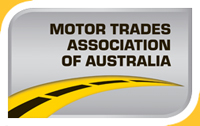Access to automotive data to provide greater consumer choice
- Details
- Published: Tuesday, 29 October 2019 08:00
The Motor Trades Association of Australia (MTAA) today welcomed the Australian Government's decision to introduce a new mandatory data sharing law that will provide fair and equitable access to motor vehicle service and repair information in a move that will revitalise the automotive service and repair industries and transform consumer choice.



